When embarking on the journey to recovery, understanding what to expect from a private detox program is essential. Detoxification, commonly referred to as detox, is the first and most crucial step in overcoming substance use disorders, including addiction to alcohol and drugs. Choosing a private detox program can provide the personalized care and comfort necessary for a successful start to addiction recovery.
Understanding Detox Programs
Detoxification is the process of removing toxic substances from the body. Unlike rehabilitation, which focuses on long-term recovery and behavioral therapy, detox programs aim to manage the withdrawal symptoms that occur when a person stops using drugs or alcohol. Detox is a vital step in treating substance use disorders, setting the foundation for ongoing addiction treatment.
Benefits of a Private Detox Program
Private detox programs offer several advantages over public or general treatment programs:
- Personalized Care and Attention: With a higher staff-to-patient ratio, private detox programs can provide individualized care tailored to each patient’s needs.
- Enhanced Privacy and Confidentiality: Patients can recover in a more secluded and secure environment, ensuring their privacy.
- Luxurious Amenities and Comfortable Accommodations: Private facilities often offer high-end amenities contributing to a more pleasant detox experience.
- Comprehensive Support Services: These programs include medical detox, psychological support, and holistic therapies to address all aspects of a patient’s well-being.
- Outpatient Detox Options: For people who have suffered a relapse, or for people who may not be able to attend inpatient detox due to family or other obligations, outpatient services may be an ideal choice, especially from a reputable, high-end detox program.
The Admission Process
Entering a private detox program typically involves several steps, ensuring a smooth transition into treatment and comprehensive preparation for the detox process. Here is an in-depth look at these steps:
Initial Consultation and Assessment
The journey begins with an initial consultation and assessment. During this stage, a thorough evaluation by a medical professional is conducted to understand the patient’s substance use history, current drug use or alcohol consumption, and overall health status. This assessment includes:
- Substance Use History: Detailed information about the patient’s drug use, including types of substances, duration of use, and frequency.
- Medical History: Understanding existing medical conditions, previous treatments, and current medications.
- Psychiatric Evaluation: Identifying any underlying mental health conditions, such as depression or anxiety, which often co-occur with substance use disorders.
- Physical Examination: Conducting a comprehensive physical exam to assess the patient’s overall health and identify any immediate medical concerns.
Medical and Psychological Evaluations
After the initial consultation, more detailed medical and psychological evaluations are performed. These assessments help to:
- Identify Co-occurring Disorders: Many individuals with substance use disorders also suffer from co-occurring mental health conditions. Identifying these disorders is crucial for developing an effective treatment plan.
- Evaluate Withdrawal Risks: Understanding the potential severity of withdrawal symptoms that the patient may experience, allowing for better preparation and management.
- Assess Physical Health: Conducting tests and screenings to identify any medical issues that must be addressed during detox.
Personalized Detox Plan Development
Based on the evaluations, a personalized detox plan is created. Considering the patient’s unique needs and circumstances, this plan is tailored to manage withdrawal symptoms effectively and safely. The plan includes:
- Detox Methods: Determining whether medical detox, holistic detox, or a combination of approaches is best suited for the patient.
- Medication Management: Prescribing medications to help manage withdrawal symptoms and support the detox process.
- Nutritional Support: Developing a nutritional plan to ensure the patient receives adequate nourishment during detox.
- Therapies: Identifying any necessary psychological and holistic therapies to support overall well-being.
Paperwork and Logistics
Before starting the detox program, necessary documentation and logistical arrangements are completed. This step ensures a smooth and organized admission process, including:
- Consent Forms: Signing consent forms for treatment and any necessary medical procedures.
- Insurance and Payment: Handling insurance verification, payment plans, and any financial arrangements.
- Logistical Arrangements: Coordinating transportation to the facility and settling into the accommodation provided by the program.
The Detox Process
During detox, patients experience withdrawal symptoms as their bodies adjust to the absence of substances. The detox process is carefully managed to ensure patient safety and comfort, involving several key components:
Overview of Common Detox Methods
Detox methods are chosen based on the patient’s specific needs and substance use history. Common methods include:
- Medical Detox: Using medications to manage withdrawal symptoms and reduce discomfort. This method is often necessary for substances like alcohol and opioids, where withdrawal can be severe.
- Holistic Detox: Incorporating natural therapies such as acupuncture, herbal supplements, and nutritional support to aid the detox process.
- Combination Approaches: Utilizing both medical and holistic methods to provide comprehensive care.
Supervised Withdrawal
Managing withdrawal symptoms under professional supervision is critical. This includes:
- 24/7 Monitoring: Medical staff monitors patients around the clock to quickly address any complications or severe withdrawal symptoms.
- Safety Protocols: Implementing safety measures to prevent health risks associated with withdrawal, such as seizures or dehydration.
Medication Management
Medications play a vital role in alleviating discomfort and supporting the detox process. This includes:
- Withdrawal Symptom Relief: Prescribing medications to reduce symptoms such as anxiety, insomnia, and nausea.
- Craving Management: Using medications to help control cravings and reduce the risk of relapse during detox.
Nutritional Support
Proper nutrition is essential for maintaining physical health during detox. This involves:
- Balanced Diet: Providing meals rich in essential nutrients to support the body’s recovery.
- Supplements: Offering vitamins and supplements to address deficiencies and boost overall health.
Monitoring and Adjustments
Regular assessments are conducted to monitor progress and make necessary adjustments to the detox plan. This includes:
- Routine Check-ups: Conducting regular health check-ups to track the patient’s condition and response to treatment.
- Plan Modifications: Adjusting medications, therapies, and support strategies as needed to ensure optimal care.
Support Services During Detox
Comprehensive support is crucial during detox to address all aspects of recovery. Essential support services include:
Medical Support
Medical support is fundamental to a successful detox, involving:
- 24/7 Nursing Care: Continuous monitoring and care from trained nursing staff to manage medical issues.
- Regular Doctor Visits: Frequent consultations with doctors to assess progress and adjust treatment plans.
Psychological Support
Addressing emotional and mental health needs is vital during detox. This includes:
- Individual Counseling: One-on-one sessions with a therapist to explore personal issues, emotions, and mental health conditions.
- Group Counseling: Facilitated group sessions where patients can share experiences and support each other, fostering a sense of community.
Holistic Therapies
Holistic therapies promote overall well-being and support the detox process. These may include:
- Yoga and Meditation: Practices that help reduce stress, improve mental clarity, and promote relaxation.
- Acupuncture: A therapy that can alleviate withdrawal symptoms and support physical health.
Peer Support
Group counseling sessions provide peer support, which is invaluable during detox. These sessions:
- Foster Community: Create a supportive environment where patients can connect and share experiences.
- Encourage Accountability: Help patients stay committed to their recovery goals through mutual support.
Family Involvement
Family therapy is an integral part of the detox process, offering support to the patient and their loved ones. This involves:
- Family Counseling: Sessions that address family dynamics and provide support for relatives affected by the patient’s addiction.
- Education: Educating family members about addiction, withdrawal symptoms, and how they can support their loved one’s recovery.
By following these comprehensive steps and utilizing the support services available, patients can navigate the detox process with the care and attention they need to begin their journey to recovery.
Post-Detox Care
After detox, transitioning to a more comprehensive treatment program is vital:
- Transition to a Rehabilitation Program: Moving into inpatient treatment or residential treatment to continue recovery.
- Aftercare Planning and Support: Developing a plan for ongoing support and care.
- Relapse Prevention Strategies: Implementing techniques to maintain sobriety and avoid relapse.
- Ongoing Therapy and Counseling: Continuing individual and group counseling to address underlying issues and support recovery.
- Support Groups and Community Resources: Connecting with resources and groups for ongoing support.
Choosing the Right Private Detox Program
When selecting a private detox program, consider the following factors:
- Location, Reputation, and Cost: Evaluating the facility’s proximity, reputation, and affordability.
- Services Offered: Ensuring the program provides comprehensive care, including medical detox, behavioral therapy, and holistic support.
- Accreditation and Certifications: Verifying that the program meets industry standards and regulations.
Choose Lilac Recovery Center for Private Detox
Choosing the right detox program is the first step toward recovery. At Lilac Recovery Center, we understand what to expect from a private detox program and strive to exceed those expectations. Our center offers:
- Personalized Care: Tailored treatment plans to meet each patient’s unique needs.
- Comprehensive Services: We cover all aspects of addiction recovery, from medical detox to behavioral therapy and holistic support.
- Luxurious Accommodations: Providing a comfortable and serene environment for recovery.
- Experienced Staff: A team of dedicated professionals committed to helping patients achieve lasting sobriety.
Contact us today to learn more about our detox programs and take the first step towards a healthier, addiction-free life.

